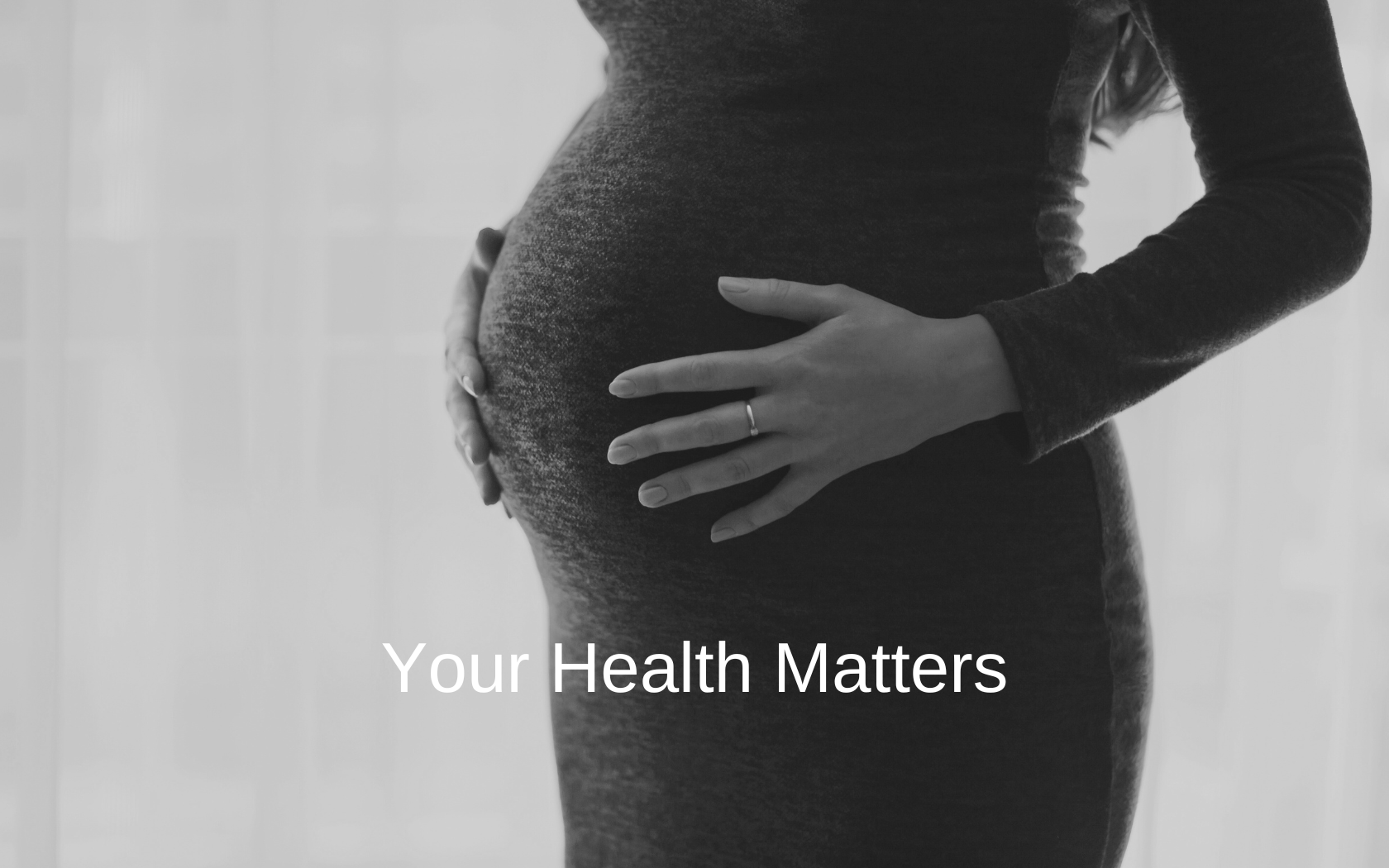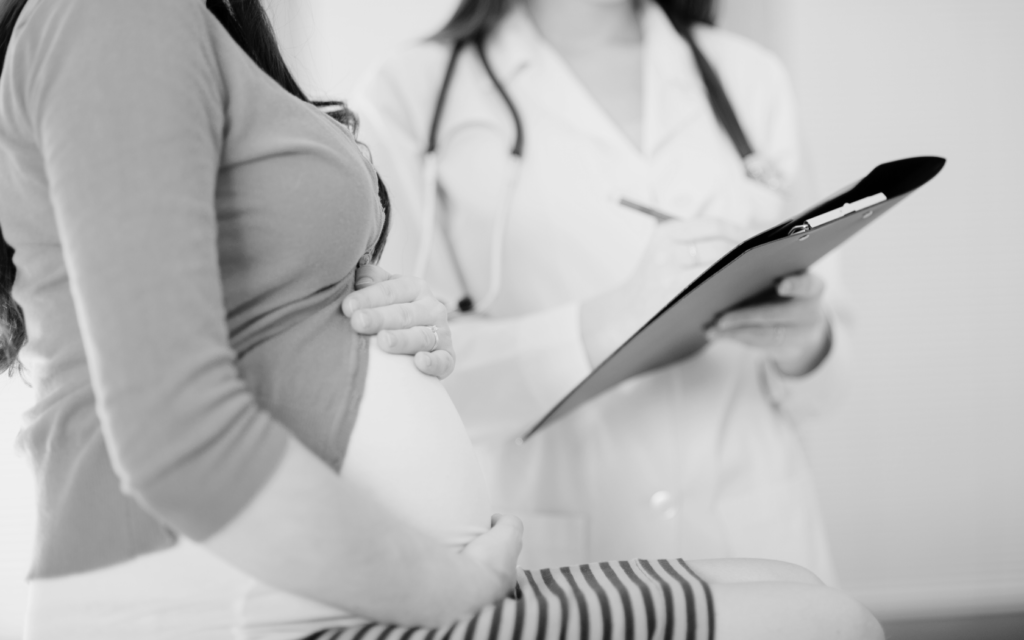Medical negligence in pregnancy occurs when healthcare providers fail to provide adequate care, resulting in harm to the mother or fetus.
But who gets to judge what “inadequate” care is? You can’t sue your doctor or midwife because you didn’t like their advice or the outcome wasn’t what you hoped for. Below, we’ll explain what pregnancy negligence is, and who’s eligible to file a pregnancy negligence claim.

What is Medical Negligence in Pregnancy?
If you want to file a pregnancy negligence claim, your provider’s mistakes have to fit the legal definition of negligence. Medical negligence is determined by whether the care provided fell below accepted medical standards.
This means that a healthcare provider may be liable for negligence if their actions deviated from what a competent professional in the same field would have done under similar circumstances.
Many different professionals can commit medical negligence in pregnancy, or obstetrical negligence. The list includes:
- Doctors
- Nurses
- Midwives
- Anesthesiologists
- Obstetricians
- Neonatologists

Examples of Medical Negligence in Pregnancy
Medical negligence in pregnancy can take various forms. It ranges from failing to diagnose conditions, to hurting a baby with forceps during delivery.
Here are some examples:
- Failure to diagnose conditions like preeclampsia or gestational diabetes
- Medication errors, such as administering the wrong dose or type of medication
- Inadequate monitoring of the mother and baby’s health during pregnancy and labor
- Failure to order a C-section when it’s necessary
- Delaying emergency care during complications like fetal distress or maternal hemorrhage
- Improper use of forceps or vacuum extractors
Long-Term Consequences of Pregnancy Medical Negligence
Medical negligence during pregnancy can have long-lasting effects on both the baby and the mother.
Some of the serious lifelong consequences a baby could have due to pregnancy medical negligence include:
- Cerebral palsy: A group of disorders affecting movement and muscle coordination.
- Developmental delays: Delays in reaching milestones like walking, talking, and cognitive development.
- Birth injuries: Physical injuries that occur during labor and delivery, such as nerve damage or fractures.
- Intellectual disabilities: Challenges in learning, problem-solving, and intellectual functioning.
- Seizure disorders: Epileptic seizures that may result from brain injury or abnormal brain development.
- Vision or hearing impairments: Loss of vision or hearing due to complications during pregnancy or birth.
For the mother, negligence during pregnancy or childbirth can lead to physical injuries such as uterine tears, infections, or pelvic floor damage. She may need surgery or long-term treatment to manage her injuries.
How Common are Pregnancy Negligence Claims?
Medical malpractice claims relating to obstetrics and gynecology are among the most common claims. A study that collected data from 1992 to 2014 found that obstetrics and gynecology ranked fourth among medical specialties with a high rate of medical malpractice.
There were 42.5 paid claims per 1,000 physician years, following neurosurgery, plastic surgery, and thoracic surgery.
Can I File a Pregnancy Negligence Claim?
Did your doctor make a mistake that harmed you or your baby? Here’s how you can find out if you’re eligible to file a pregnancy negligence claim:
- Harm or injury. You (or your baby) must have suffered harm or injury as a result of medical negligence. This could include physical injuries, emotional trauma, or long-term health conditions.
- Negligence: The healthcare provider must have failed to provide a reasonable standard of care. They didn’t do what another competent healthcare provider would have done in similar circumstances.
Let’s consider an example. Preeclampsia is a serious pregnancy condition involving a spike in blood pressure. Sometimes doctors fail to diagnose it or treat it on time.
If preeclampsia leads to seizures, early delivery, or other complications, this could be grounds for a claim. Hampton & King has handled numerous cases involving preeclampsia. Most notably, we obtained $2.8 million dollars for a family when a mother lost her life due to preeclampsia.

Filing a Claim: Where to Start
What should you do if you think you’re a victim of medical negligence in pregnancy? The first step is to contact a medical malpractice lawyer.
A lawyer can help determine if your case meets the criteria for a negligence claim. They can evaluate your case by reviewing medical records and the details of your experience. You can schedule an initial consultation with our caring, competent lawyers for free.
Be aware of the statute of limitations for filing a claim in your state or country. This is the time frame within which you must file your claim. It varies by location. So don’t wait if you believe you have a case. Reach out to our lawyers now.
Maternity Negligence and Pregnancy FAQs
You can sue for emotional distress during pregnancy in certain cases. It depends on the circumstances and the laws in your jurisdiction. Emotional distress claims often fall under the category of “intentional infliction of emotional distress” (IIED) or “negligent infliction of emotional distress” (NIED).
Here are some examples of when you could sue for emotional distress during pregnancy:
– Your care provider’s behavior was extreme and intentional and caused severe emotional distress.
– Someone’s negligence caused you emotional distress that resulted in physical harm (such as having a miscarriage).
– You endured false imprisonment, racial insults, or sexual insults/harassment.
The compensation you can get for birth trauma or pregnancy negligence depends on how serious the injuries are. It also depends on how the injury impacts the child’s and mother’s lives, and the jurisdiction where you file the lawsuit.
Other factors that influence the compensation amount include:
– Medical expenses: Like current and future medical costs, surgeries, rehabilitation, and ongoing care.
– Pain and suffering: Compensation for physical pain and emotional distress suffered by the mother and/or child.
– Loss of earnings: Birth trauma can impact the child’s ability to work in the future. Also, parents might have to take time off work to care for the child.
– Impact on quality of life
– Punitive damages: This is compensation for intentional harm.
In the U.S, some birth injury cases have resulted in multi-million dollar settlements or verdicts. Compensation is higher when injuries are severe, leading to lifelong care needs.
Here are some of the most common birth injuries mothers suffer:
– Perineal tears: The tissue between the vagina and the anus (the perineum) tears during childbirth.
– Complications from Episiotomy: An episiotomy is a surgical cut doctors make in the perineum to widen the vaginal opening. It can lead to complications if it doesn’t heal properly.
– Pelvic floor injury: Damage to the muscles and ligaments that support the pelvic organs.
– Uterine rupture: A rare but serious condition where the uterine wall tears during labor.
– Hemorrhage: Excessive bleeding during or after delivery.
– Infection: Infections can occur in the uterus, bladder, or at the site of a tear or episiotomy.




